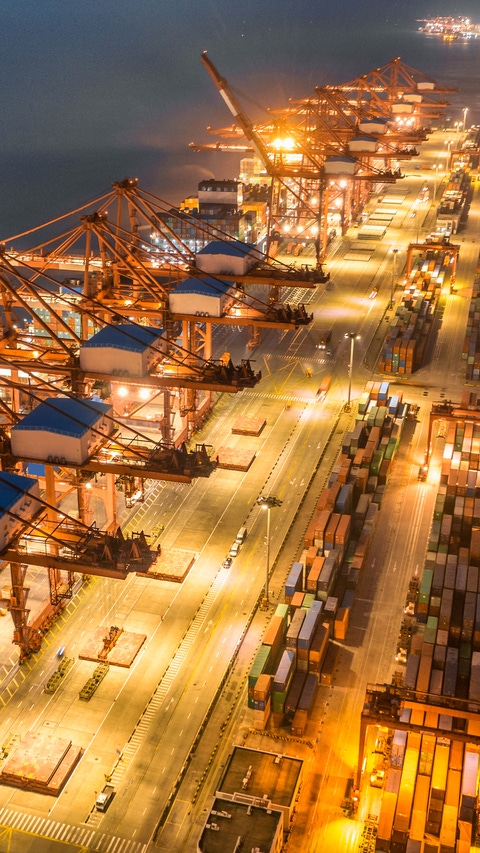BASF Corporate Commitment.
We source responsibly.

BASF in Greater China 2022
As a global enterprise, we have a responsibility to meticulously manage our supply chains. BASF aims to improve its supply chains sustainably and exceed customer expectations through its industry collaborations and digitalization strategies.
BASF Corporate Commitment.
We source responsibly.
BASF is committed to improving sustainability in the overall supply chain of the chemical industry by having suppliers adhere to internationally recognized environmental, social and governance (ESG) standards and regulations. BASF continued the Supplier CO2 Management Program in 2022 and extended invitations to suppliers, including those from Greater China, to join the program. By educating our suppliers on Product Carbon Footprint evaluation methodologies and tools, the program seeks to increase the transparency of the CO2 emissions associated with our purchased raw materials. This allows our suppliers to identify medium-term measures for optimization.
BASF’s Supplier Code of Conduct is based on internationally recognized guidelines, including compliance with human rights, anti-discrimination and anti-corruption policies, as well as environmental protection. Over 3,000 new suppliers in Asia Pacific signed our Supplier Code of Conduct in 2022.
Under the initiative “Together for Sustainability” (TfS), 37 companies from the chemical industry, including BASF, have agreed on a global standard for calculating the Product Carbon Footprint. BASF continues to conduct supplier evaluations and trainings based on the framework of high sustainability standards. The BASF Group conducted a total of 79 audits and 963 online assessments in 2022. In Greater China, BASF conducted 58 on-site audits and 287 online assessments of local suppliers in the same year.
The sustainability training webinars conducted by TfS members and EcoVadis were an integral part of the supplier development process in 2022. Over 1,900 participants from around the globe, including more than 400 from Greater China, joined the webinars. In addition, TfS launched a new online learning platform, "TfS Academy," with the intention of assisting its value chain partners with further optimization. With 335 courses available in ten distinct languages, the platform encompasses the entire spectrum of ESG-related topics.
BASF aims to create an integrated supply chain with our customers, suppliers and partners thereby increasing the transparency of the entire supply chain through digitalization approaches.
During the COVID-19 resurgence in 2022, BASF Greater China responded quickly and approached all feasible resources to overcome shortages and ensure uninterrupted deliveries to its customers. For on-site logistics operations, BASF leveraged waterways, railways and redistribution modes and implemented a “no contact” and closed-loop operation models if needed.
BASF worked closely with local logistics providers to guarantee the smooth mailing of invoices to customers in order to maintain the VAT invoice process. This cross-department team dispatched roughly 28,000 VAT invoices.
At the 9th Shanghai Supply Chain Development Conference & Yangtze River Delta Supply Chain Innovation Summit Forum, BASF was recognized as one of Shanghai's exemplary supply chain innovation and application cases. This award was in recognition of BASF's on-site logistics digital innovations at the Pudong site, which included Yard Management, SAP Extended Warehouse Management (SAP EWM), Automated Guided Vehicle (AGV), and Forklift Safety Management.
